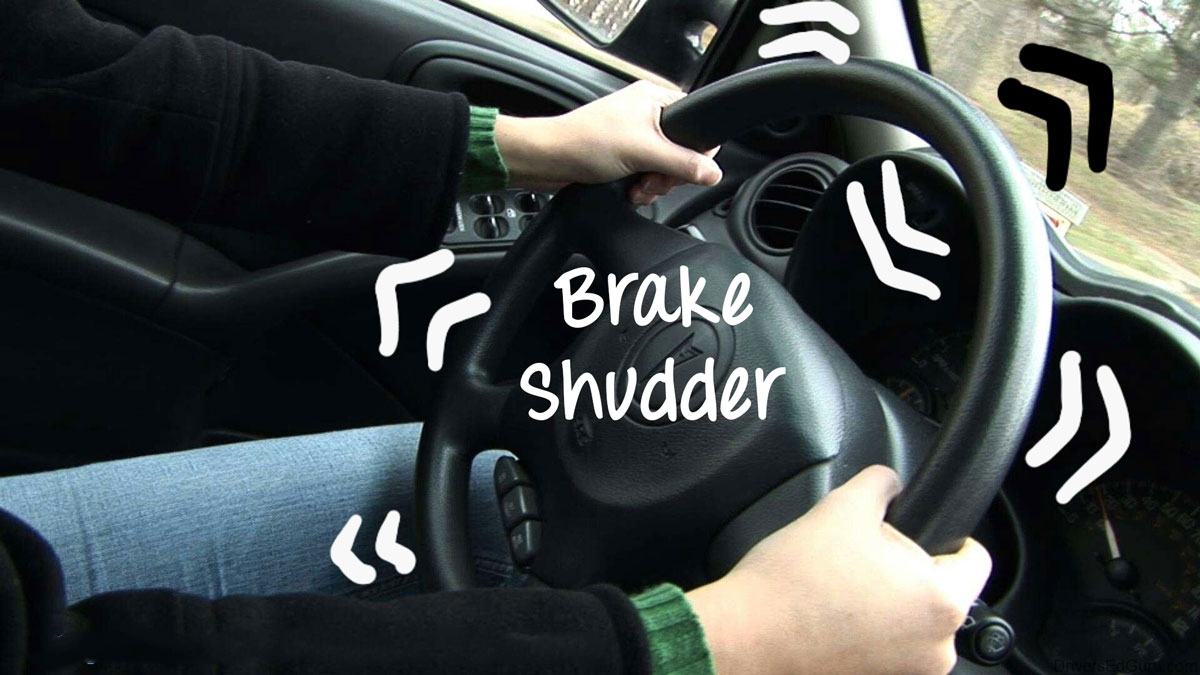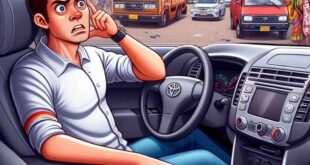If you are experiencing your steering wheel shaking or quivering each time you apply the brake or try to come to a stop, this means there’s certainly something wrong with your car’s braking system. The culprits can range from worn brake pads to dry guide pins and bent out of shape rotors (Brake Disc). We will learn more about this problem and what you can do to put a stop to the shivers and shakes!
Worn Brake Pads

When you press down on the brake pedal, you kick start a series of rapid events. As you step on the pedal a caliper applies pressure to the brake pad, which in turn clinches down on the rotors (Brake Discs). (Similar to how bicycle brakes work.) This brings your car to a stop. If anything is “off” with said brake pad, you may feel it in your steering wheel. Brake pads that are old, worn, or particularly dirty cannot grip the rotor effectively and can cause your steering wheel to quiver or shake.
Calipers were built to last for the long time. Rotors (Brake Discs) and brake pads, on the other hand, tend to wear out over time. Thankfully rotors(Brake Discs) can be resurfaced or replaced, and brake pads can easily be replaced too. A quick brake inspection at your mechanic’s can give you a clue you into how much life may be left in your brake pads.
Dry Guide Pins

If your steering wheel is shaking as you’re trying to stop, dry guide pins could also be the culprit. The guide pins are part of the brake calipers. They’re in charge of guiding the brake pad to the rotor (Brake Disc). To do their job effectively, these guide pins need to be clean and lubricated. If guide pins become dry or corroded, they could cause the caliper to stick or cause the brake pads to press the rotor (Brake Disc) at the wrong angle. The result? Vibrations in the steering wheel.
Inspecting and lubricating caliper guide pins is best left up to professionals, as it involves taking off the caliper, examining the caliper housing, and handling high-temperature grease. Visit your mechanic for brake inspection and if needed, a brake service or repair.
Bent Or Out Of Shape Rotors (Brake Disc)

If you feel a pulsing in the brake pedal and a wobbling of the steering wheel when slowing at highway speeds, your rotors (Brake Discs) could be signaling trouble. When you step on the brake and the brake pads press down on the rotors, the rotors become extremely hot. Naturally, this heat can cause the rotors to become worn, warped, and uneven over time. Since your brake pads will be pressing onto a surface that isn’t smooth, your braking and steering won’t feel smooth either.
To get to the bottom of this issue, a technician can do one of two things. They can spin the rotors by hand and feel for any irregularities, or they can remove the rotors and measure them with a micrometer. If a rotor is worn down to the minimum thickness specification, the rotor cannot be resurfaced and must be replaced. When it comes to replacing brake rotors, every car is different. The need for brake rotor replacement or resurfacing is best determined with an inspection and review of the vehicle manufacturer standards, which technicians can do during a brake check.
Your braking system is probably the most important part of your car that shouldn’t be taken for granted. If you notice any shaking when braking, immediately contact your mechanic. You can schedule for a brake inspection HEREa professional brake techinican will contact you within 24 hours.
 Spot Dem Everything About Cars
Spot Dem Everything About Cars






